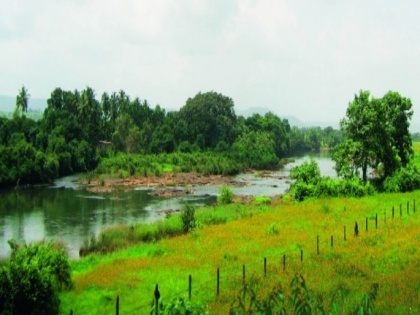Increasing Number of Man-Made Wetlands a Cause for Concern, Expert's Statement on World Wetlands Day
By Lokmat English Desk | Published: February 8, 2024 12:33 PM2024-02-08T12:33:35+5:302024-02-08T12:35:09+5:30
Mumbai: Six percent of India's population relies on wetlands. About 35 percent of wetlands have been destroyed since the ...

Increasing Number of Man-Made Wetlands a Cause for Concern, Expert's Statement on World Wetlands Day
Mumbai: Six percent of India's population relies on wetlands. About 35 percent of wetlands have been destroyed since the 1970s. India's natural wetlands are shrinking; However, it is dangerous that the number of man-made wetlands is increasing, said Dr. Ritesh Kumar, director of the World Wetlands South Asia.
On the occasion of World Wetland Day, the Environmental Vigilance Board, University of Mumbai, Enviro-Vigil, and Association of Teachers in Biological Sciences organized a conference on the theme of wetlands for human welfare at Green Nanotechnology Auditorium at Vidyanagari Campus, University of Mumbai. Dr Ritesh Kumar was speaking on the occasion. On the dais, Environment Vigilance Board Chairman Dr. Mansi Joshi, Environment Vigilance Board member Dr. Nand Kumar Joshi, and Head of The University of Mumbai's Faculty of Science Shivram Garje were present.
Vice Chairman of the Environmental Vigilance Board Prasad Karnik explained the importance of the conference. The Environment Vigilance Board has been conducting a scientific study of Thane Creek for the past several years through the Clean Creek Campaign.
QR codes for university trees:
Head of the Department of Geography, University of Mumbai Aparna Phadke revealed that trees in the Kalina area of Mumbai University have been fitted with QR codes. This gives the names of those trees and related information.
There is a water recycling plant, and fertilizer plant in the same area showing Mumbai University's efforts towards reducing carbon.
Open in app